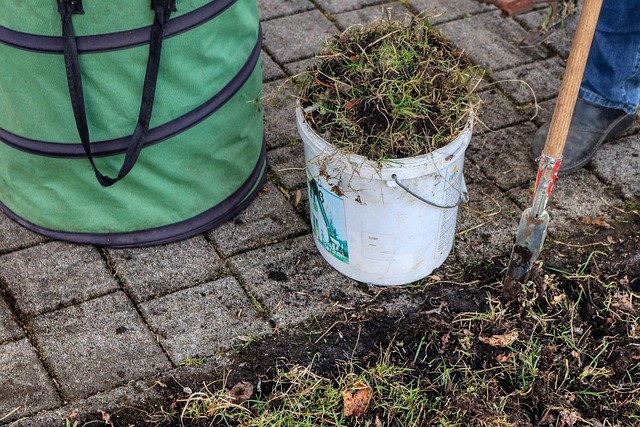
A novel concept in the garden lately has been “teas” of different origins. All of them have merit and are worth considering. They can be made with the supplies you have on hand or with minimal cost, and can make a difference in your garden. Usually all you will need is water, a big bucket or two, and the tea fixings.
Now is a good time of year to start one of them, as it takes several months to “steep”. I am currently steeping a bucket of anaerobic weed tea, which takes about 6 months or more to ferment. Here are some suggestions:
Aerobic weed tea – throw chopped weeds into a bucket to about half full, fill it with water, lay a screen over the top to keep out mosquitos, stir daily for 2-3 weeks, then strain. Add the solids to your compost pile, then dilute the liquid to half, and use on plants as needed.
Anaerobic weed tea – using a bucket with a cover, follow the first 2 steps as above, then cover tightly and store in a protected space for 6 months or more. When you are ready to use, follow the last 3 steps as listed above. Anaerobic tea allows you to skip the mosquito step while steeping a tea full of nutrients, without the smell.
Compost tea -fill a 5 gallon bucket 1/3rd full of compost. Mature compost is best because its nutrients are completely broken down and will absorb quickly and more easily into the water. Once you have the compost in the bucket, fill it with water to within an inch or so of the top of the bucket. Stir a few times each day for about five days. Strain the compost mixture using a mesh screen or strainer. Toss the used compost back into your pile to recharge, dilute to half, and your liquid is now compost tea! Store by placing it out of direct sunlight. For more information: https://oldworldgardenfarms.com/2023/05/21/make-compost-tea/
Banana peel tea -Keep a pitcher of water in your refrigerator about ¾ full. As you eat bananas, place your discarded peels in the pitcher until it’s full. After about a week, strain out the liquid and reserve for your tea. Compost the peels. Dilute this concentrated liquid solution 5:1 (five parts water to one part tea) and apply to the base of your garden plants—this mixture is good for potassium-loving plants such as tomatoes and peppers. Note that this tea does not contain nitrogen, so it is not a complete fertilizer. For more information: https://www.farmersalmanac.com/fertilizer-teas
Eggshell tea – Collect your empty (clean) eggshells. Boil a gallon of water in a large pot and add 10 to 20 eggshells. Turn off heat and allow the brew to sit overnight. Strain the cooled liquid and use it to water your plants. Crush and compost the shells.
To Apply: This tea can be applied weekly. No need to dilute. You can alternatively save the cooled water left over from hard boiled eggs, provided you don’t add salt to the water. Broccoli, cauliflower, Swiss chard, and spinach thrive with an extra dose of this calcium-packed fertilizer. Your tomatoes, peppers, and eggplants will benefit too, as the calcium boost helps prevent blossom-end rot. For more information: https://www.farmersalmanac.com/fertilizer-teas
Manure teabag – You can use an old cotton pillowcase to line a large bucket or other container and fill two-thirds of the way full with water. Add enough manure to fill the bucket the rest of the way. Let this steep for a day or two, stirring once or twice a day. When you’re ready to use your manure tea, just lift the bag out of the bucket, wring it out to ensure that all of that manure-y goodness ends up in your tea, and add the used manure to your compost pile. Use water to dilute the manure tea; it should ideally be the color of weak tea, a pale brownish-yellow. Apply weekly. For more information: https://www.thespruce.com/using-manure-tea-in-the-garden-2539481
You can scout the internet for many more garden tea ideas, including coffee and tea! These ideas can keep you thinking and planning for next year’s gardens.
Other Things to Do in the Garden
~Mulch plants after a hard frost to protect over winter.
~Remember to plant those spring bulbs you always wanted.
~ Rake the leaves and any grass clippings that remain, and keep for mulch and compost.
~Fall cleanup can last into early winter, so pace yourself and watch the weather for optimum days outside.
“”No winter lasts forever; no spring skips its turn.”
— Hal Borland.
Caroline Poppendeck, Librarian
Steele Memorial Library
